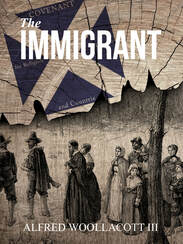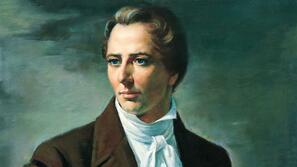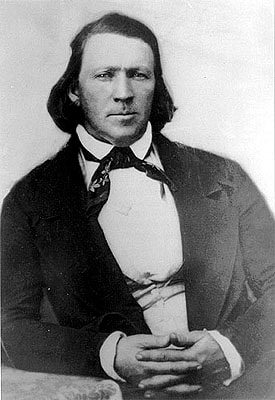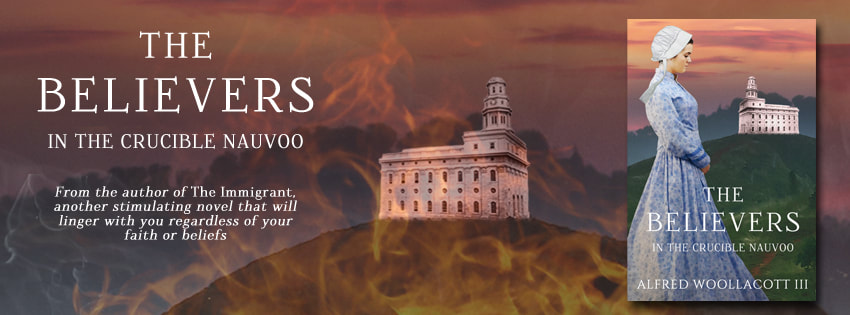A re-posting of a recent blog from Layered Pages. https://layeredpages.com/2019/02/13/characters-in-motion-naamah-carter/
______________________________________________
Today I am talking with Alfred Woollacott III about his character, “Naamah Carter.” Alfred retired from KPMG after a career spanning 34 years, choosing to reside full time at his summer residence on Martha’s Vineyard. Being “45 minutes from America” and with a 50 – 60 hour per week void to fill, he began dabbling into his family history. His dabbling grew into an obsession, and he published several genealogical summaries of his ancestors. But certain ones absorbed him such that he could not leave them. So, he researched their lives and times further while evolving his writing skills from “just the facts ma’am” to a fascinating narrative style. Thus, with imagination, anchored in fact and tempered with plausibility, a remote ancestor can achieve a robust life as envisioned by a writer with a few drops of his ancestor’s blood in his veins.
Alfred, why did you choose to write about Naamah?

Naamah continues the planned trilogy albeit chronologically out of order since her story had to be told. She and her four-greats grandfather John Law my first novel’s protagonist faced similar challenges. Both held shunned Christian beliefs, were forced from their homeland, endured tragic losses, and persevered against prejudice and hostility. In “The Believers in the Crucible Nauvoo” Naamah symbolized the pioneering women of the early LDS church, just as John Law exemplified the Scottish Prisoners of Wars struggles in the Puritan Theocracy of Colonial America. Carol Cornwell Madsen’s book “In Their Own Words” enriI wantede to tell. Delving further, I found some of Joseph Smith’s discourses not dissimilar to my Episcopalian beliefs and broadened my Christian foundation. However, the plural wives' principle was an anathema that I had dismissed as justification to institutionalize man’s polygamous tendencies. Yet I continued wondering about Naamah’s perspective. Laurel Thatcher Ulrich’s book “A House Full of Females” provided further insight. Each relationship was unique and multi-faceted as was Naamah’s with Brigham

What is the mood or tone Naamah portrays and how does this affect the story?
Naamah is a strong, resilient woman of deep faith. She is six-years-old when we first meet her placing flowers on her father’s grave site in remembrance of his birthday. Her unique name honors her aunt, Naamah Kendall Jenkins, who had died three weeks before her birth. Early in life, Naamah connected to family residing in heaven. Her mother’s death several years later tightened those heavenly bonds. In a larger sense, the Calvinist doctrine of the First Awakening had formed her Christian beliefs and had grown stale. Something was lacking. Joseph Smith’s teachings offered refreshment and a romanticized view of principles she held dear. This Second Awakening gave an offer of hope, salvation, and glory to those who had believed their lives were pre-determined to be ‘sinners in the hand of an angry God'. Many still clung to past and persecuted those who followed the teachings of these ‘false prophets’.
What are Naamah’s role in her family and some emotions triggered by it?
Naamah lost her father early and her mother several years later. Being the eldest of three sisters, she assumed a surrogate mother role for her ‘baby sister’ Susan, protecting her from the acid-tongued, narrow-minded, middle sister Betsey. Susan’s relationship with Naamah changed as she matured while Naamah’s did not. Her baby Susan still needed care; she had to stay in Peterborough and not leave with the Saints for Nauvoo. Eventually, she realized that Susan had become her crutch, which caused her to doubt the depth of her faith. Soon after arriving in Nauvoo, she marries, only to lose her husband a few months later. A month later her beloved Aunt Susan dies and compounds her sense of loss. Now virtually alone and feeling isolated, she longed to return to Peterborough. Her emotions overwhelmed and paralyzed her until two Sisters rekindled her belief in eternal life giving her a path out of her nadir.
Naamah is a strong, resilient woman of deep faith. She is six-years-old when we first meet her placing flowers on her father’s grave site in remembrance of his birthday. Her unique name honors her aunt, Naamah Kendall Jenkins, who had died three weeks before her birth. Early in life, Naamah connected to family residing in heaven. Her mother’s death several years later tightened those heavenly bonds. In a larger sense, the Calvinist doctrine of the First Awakening had formed her Christian beliefs and had grown stale. Something was lacking. Joseph Smith’s teachings offered refreshment and a romanticized view of principles she held dear. This Second Awakening gave an offer of hope, salvation, and glory to those who had believed their lives were pre-determined to be ‘sinners in the hand of an angry God'. Many still clung to past and persecuted those who followed the teachings of these ‘false prophets’.
What are Naamah’s role in her family and some emotions triggered by it?
Naamah lost her father early and her mother several years later. Being the eldest of three sisters, she assumed a surrogate mother role for her ‘baby sister’ Susan, protecting her from the acid-tongued, narrow-minded, middle sister Betsey. Susan’s relationship with Naamah changed as she matured while Naamah’s did not. Her baby Susan still needed care; she had to stay in Peterborough and not leave with the Saints for Nauvoo. Eventually, she realized that Susan had become her crutch, which caused her to doubt the depth of her faith. Soon after arriving in Nauvoo, she marries, only to lose her husband a few months later. A month later her beloved Aunt Susan dies and compounds her sense of loss. Now virtually alone and feeling isolated, she longed to return to Peterborough. Her emotions overwhelmed and paralyzed her until two Sisters rekindled her belief in eternal life giving her a path out of her nadir.

What is one of her beliefs as a Christian and how does this affect her life?
Naamah believed in eternal life, and Joseph’s teachings enhanced her understanding of it. He prophesied that we reside in heaven like Jesus did until we are sent to the earthly kingdom. While there, those who believed in Joseph’s prophecy and lived the gospel daily will return to the heavenly kingdom. Naamah accepted that God spoke through the prophets and came to believe that Joseph was his latest. She dreamed to hear directly from Joseph. She first witnessed Joseph through Brigham as he preached to the faithful in Peterborough. After Joseph’s death, she rationalized that the closest she would come to Joseph while on earth was through Brigham. In Nauvoo, she worked daily with Brigham at the temple doing the Lord’s work and became torn when he proposed marriage to her. She had been sealed for eternity to another who awaited her in heaven. Brigham was married, and becoming his plural wife violated what she held sacred. Yet, through marriage, she would be closer to him, and thus, to God.
How is she influenced by her setting?
A tight-knit Peterborough began unraveling as Joseph Smith obtained a following. Erstwhile friends and family turned from Naamah and her rapidly-growing community of Saints. Many Saints left for Nauvoo while Naamah dawdled. But as Peterborough’s animosity increased, she left, too. Tenfold larger than Peterborough and unified in a belief, Naamah saw Nauvoo as Joseph Smith had promised — God’s earthly kingdom, But over time, Nauvoo grew more hostile and threatening than Peterborough ever had been.
Did she ever have doubts about Joseph Smith’s testaments?
As her beloved Aunt Susan oft said, “Even Jesus had doubts while in the garden of Gethsemane.” Family ridiculed her, former friends turned from her, the death of loved ones caused her to grieve, hostile surroundings threatened her peace, and the offer of a plural marriage challenged a sacred belief. With each, doubts arose that she eventually overcame when she realized God would be with her . . . always.
Please talk about the courage and strength of Naamah and possibly the isolation?
On her wedding day, Naamah felt as though she was atop an alabaster column that extended to the heavens. As the newlyweds neared Nauvoo’s temple, she said, “Once the temple is completed, we must have our marriage endowed in it.” To which her husband replied, “Once it’s completed, we’ll leave Nauvoo.” “Leave Nauvoo?” She said. “I’ve just arrived here. Why? Why?” Chip, chip, and cracks appeared in the alabaster. Chip, chip; increasing enmity surrounded Nauvoo, her husband died, and Aunt Susan died, and within months of her marriage, Naamah lay amid the rubble of alabaster. She wallowed in her nadir until uplifted by doing the Lord’s work alongside Brigham made her realize again that God would be with her always.
What are some similarities that a modern-day woman would have with Naamah?
Naamah’s challenges were not dissimilar to those women have faced for eternity. But she had fewer options than today’s women. A couple of centuries ago, it was more a ‘Man’s world’ than today. As such, we are less aware of the women’s perspective than we are now. Ulrich’s book “A House Full of Females” would have been near impossible to publish in the 1800s. Roles are less defined by gender than before, giving women more options and more reasons to question. Of course, “Even Jesus had doubts while in the Garden of Gethsemane.”, and questions will eventually be answered.
Naamah believed in eternal life, and Joseph’s teachings enhanced her understanding of it. He prophesied that we reside in heaven like Jesus did until we are sent to the earthly kingdom. While there, those who believed in Joseph’s prophecy and lived the gospel daily will return to the heavenly kingdom. Naamah accepted that God spoke through the prophets and came to believe that Joseph was his latest. She dreamed to hear directly from Joseph. She first witnessed Joseph through Brigham as he preached to the faithful in Peterborough. After Joseph’s death, she rationalized that the closest she would come to Joseph while on earth was through Brigham. In Nauvoo, she worked daily with Brigham at the temple doing the Lord’s work and became torn when he proposed marriage to her. She had been sealed for eternity to another who awaited her in heaven. Brigham was married, and becoming his plural wife violated what she held sacred. Yet, through marriage, she would be closer to him, and thus, to God.
How is she influenced by her setting?
A tight-knit Peterborough began unraveling as Joseph Smith obtained a following. Erstwhile friends and family turned from Naamah and her rapidly-growing community of Saints. Many Saints left for Nauvoo while Naamah dawdled. But as Peterborough’s animosity increased, she left, too. Tenfold larger than Peterborough and unified in a belief, Naamah saw Nauvoo as Joseph Smith had promised — God’s earthly kingdom, But over time, Nauvoo grew more hostile and threatening than Peterborough ever had been.
Did she ever have doubts about Joseph Smith’s testaments?
As her beloved Aunt Susan oft said, “Even Jesus had doubts while in the garden of Gethsemane.” Family ridiculed her, former friends turned from her, the death of loved ones caused her to grieve, hostile surroundings threatened her peace, and the offer of a plural marriage challenged a sacred belief. With each, doubts arose that she eventually overcame when she realized God would be with her . . . always.
Please talk about the courage and strength of Naamah and possibly the isolation?
On her wedding day, Naamah felt as though she was atop an alabaster column that extended to the heavens. As the newlyweds neared Nauvoo’s temple, she said, “Once the temple is completed, we must have our marriage endowed in it.” To which her husband replied, “Once it’s completed, we’ll leave Nauvoo.” “Leave Nauvoo?” She said. “I’ve just arrived here. Why? Why?” Chip, chip, and cracks appeared in the alabaster. Chip, chip; increasing enmity surrounded Nauvoo, her husband died, and Aunt Susan died, and within months of her marriage, Naamah lay amid the rubble of alabaster. She wallowed in her nadir until uplifted by doing the Lord’s work alongside Brigham made her realize again that God would be with her always.
What are some similarities that a modern-day woman would have with Naamah?
Naamah’s challenges were not dissimilar to those women have faced for eternity. But she had fewer options than today’s women. A couple of centuries ago, it was more a ‘Man’s world’ than today. As such, we are less aware of the women’s perspective than we are now. Ulrich’s book “A House Full of Females” would have been near impossible to publish in the 1800s. Roles are less defined by gender than before, giving women more options and more reasons to question. Of course, “Even Jesus had doubts while in the Garden of Gethsemane.”, and questions will eventually be answered.



 RSS Feed
RSS Feed
